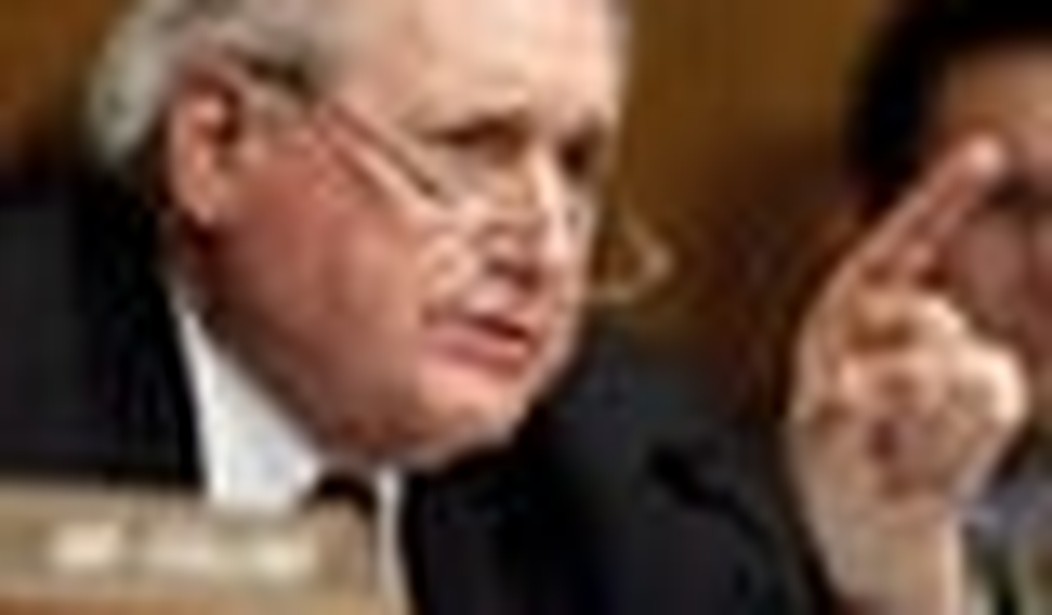Last week, the Wall Street Journal and Washington Post identified several members of Congress and the Senate who, during the financial crisis, took short positions in the market, betting against the U.S. economy. This behavior is not just hypocritical. It marks yet another breach of the public trust.
Let’s start with the hypocrisy. The timing of the story wasn’t coincidental. Just days before, Senator Carl Levin (D-MI) summoned Goldman Sachs executives to Capitol Hill and delivered an unprofessional and foul-mouthed tirade on how they had pushed bad investments. The hearing was on the heels of a SEC civil suit and did its best to make the firm look like a bunch of crooks.
There were two problems with Carl Levin’s political posturing. The first is that the SEC complaint focused on disclosure issues on one specific investment product, and certainly wasn’t an indictment of the company’s business practices by any stretch of the imagination. It’s a non-issue that will likely be settled for a few million.
The second problem with the senator’s rant is that it’s clueless about how markets work and how companies like Goldman keep them working. It buys into the simplistic tale of short sellers as the market’s villains, driving down share prices and destroying the economy.
When prices fall, short sellers make money. But when prices go up, they lose money, and the people who bought stocks from them get richer. It’s a bet that may or may not pay off.
And a company like Goldman Sachs makes trades, but also matches up the buying and selling activity of other traders. This would be virtually impossible without the ability to borrow and lend securities.
Selling short isn’t unique to Goldman, and any trader can do this — including those who work on Capitol Hill, and the Wall Street Journal and Washington Post articles identified several. Hence the hypocrisy — Sen Levin was accusing Goldman Sachs of financial behavior that members of Congress were also engaged in.
But here’s the important difference. Goldman Sachs traders never took the oath of office. Members of Congress did. For them to be betting against the U.S. economy and profiting from its woes is shameful behavior.
We elected our officials to solve our nation’s problems, the foremost of which is the weak economy. They asked us to give them these responsibilities so that they could exercise their leadership and judgment. In the course of their workday, they meet with government officials, captains of industry, and foreign leaders.
When these same elected officials phone their Wall Street brokers and take a financial position against the very entity which they are charged with preserving and protecting — the United States — how could it be anything other than a breach of the public trust?
But unfortunately, the problem goes beyond just a few members of Congress short selling. Any large investment by an elected official has the potential to generate a conflict of interest. With the wholly inadequate financial disclosure systems in place, it is harder than ever to determine someone’s incentives, and far more important to monitor their behavior.
Now why was Sen. Carl Levin so eager to paint Goldman Sachs as a bunch of crooks? To advance the Democrats’ embarrassingly weak and misguided financial reform agenda, naturally.
In the campaign, President Obama was sold as a Spock-like champion of intelligent and practical debate. Yet he seems most at home giving populist rants heavy on emotion and thin on substance and argument.
In the health care reform debate, the simple message was that insurance companies are greedy and government can protect us from their profiteering. This argument grossly underestimated the intelligence of the American people across the political spectrum who actually wanted to know what was in the bill.
The strategy on financial reform appears to be the same. The president goes to Quincy and produces such gems as “at some point, you’ve made enough money.” He puts the blame for the financial crisis at the feet of Wall Street bankers and their irresponsible behavior, and paints the Republicans as their protectors.
But what’s in the bill? A permanent bailout fund. A “financial responsibility” tax. More government bureaucracy. More authority for the Fed. Like health care reform, financial reform sounds like a good idea until one looks at the proposed plan and who stands to benefit — big banks and big government.
What’s not in the bill? Freddie Mac and Fannie Mae, the two institutions that shoveled trillions in mortgage money to homeowners that could never pay it back and left the U.S. taxpayer to pick up the tab. Just last week, Freddie asked for another $10B. The firm — or government agency or whatever it is – is a never-ending bailout.
President Obama supported the bailouts from the beginning and even put a Goldman Sachs executive — Neel Kashkari — in charge of them. Greg Craig, former White House counsel, now works for Goldman. He and the Democrats took millions in campaign contributions from the firm. The revolving door is obvious.
And now we know that some members of Congress and the Senate trade like Goldman Sachs, shorting the American economy and American industry when they think there’s a profit to be made.
Americans want an end to the hypocrisy and outright lies coming out of Washington because they know exactly where that behavior leads — to government officials enriching themselves and their friends at our expense.









Join the conversation as a VIP Member